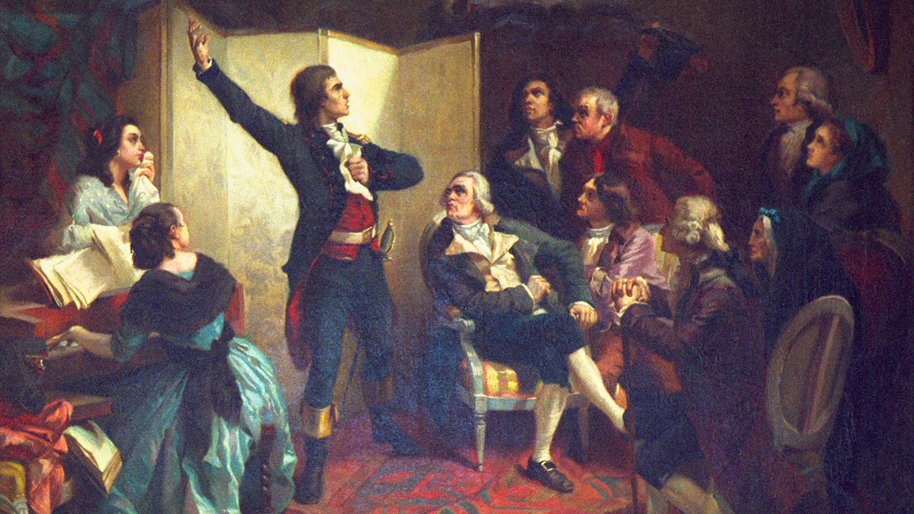Contenu de l'article
La Marseillaise
Rouget de Lisle (1760-1836) and La Marseillaise

Rouget de Lisle chantant la Marseillaise (tableau)
© Assemblée nationale
"Mr de Lisle, write for us a song that will rally our soldiers from all over to defend their homeland that is under threat and you will have won the nation," proposed Dietrich, the Mayor of Strasbourg on the evening April 25th 1792, to one of his guests, Rouget de Lisle. The painter Isidore Pils (1813- 1875) immortalized the moment It was a tumultuous period in history : five days after France 's declaration of war on Austria and Prussia the French needed a marching song that could galvanize the troops of the Rhine Army. As a result, the highly successful French national anthem was born. Its author, however, was not so lucky.
Claude Joseph Rouget de Lisle was born in Lons-le-Saunier on May 10th 1760. He spent his childhood in the nearby town of Montaigu in the Jura department where his parents lived. From a very young age Claude Joseph showed a passion for music, but his father had other plans for him. In 1776, he enrolled at the Ecole militaire ( Military Academy ) in Paris and in 1782 at the École du génie de Mézières (engineering school in Mézières). In 1791 he joined the Rhine Army in Strasbourg and was assigned to the Les enfants de la patrie battalion. It was here, at the behest of Dietrich, that he composed the Battle hymn of the Rhine Army. The song was adopted by soldiers from Marseille as they marched into Paris in July 1792 Parisians called the song the "Marseillaise" and the name stuck. In August 1792, Rouget de Lisle was suspended from office after refusing to recognize the abolition of monarchy. He was reinstated in October of the same year. During the Terror he was imprisoned in Saint-Germain-en-Laye. He was released after the Thermidorean Reaction (July 1794) that led to the arrest and execution of Robespierre. On the April 9th 1796 , Rouget de Lisle finished his military career. He had disappointments with Napoléon, occupied a range of posts, and earned a meagre living through his writing. In 1830 he was made a Knight of the Legion of Honour. He died on June 26th 1836 in Choisy-le-Roi at the age of 76. His ashes were moved to Les Invalides on 14th July 1915 . As for La Marseillaise, it was declared a national song on 14th July 1795 and became the national anthem in 1879.